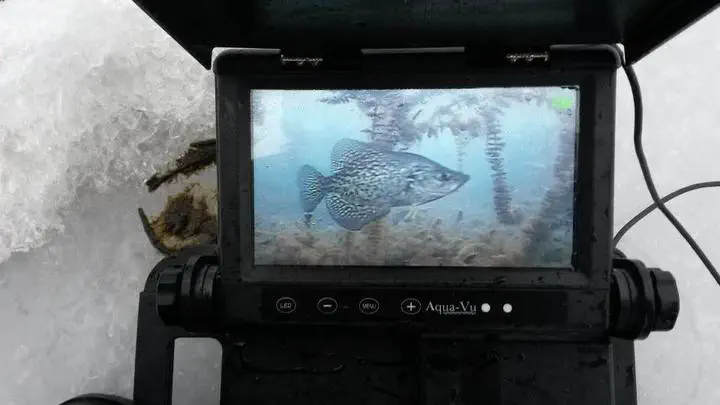Fisheries as social-ecological systems

It is important to recognize that fish only represent half of the equation when trying to understand what makes a fishery tick. Also understanding the anglers themselves, their attitudes, responses, and behaviors, is critical for developing effective policy and predicting how fisheries will respond to new challenges, like climate change.
We have examined a number of emerging concerns in how fisheries, as social-ecological systems, are changing and potentially altering fish population dynamics. Fishing technology, like forward-facing sonar, cameras, and other high tech gadgets, are often cited as fundamentally changing the interaction between anglers and fish. However, our research, while still ongoing, has found a much more nuanced picture of how technology influences not just angler catch rates, but also their expectations and satisfaction with fishing trips. We also continue to perform survey work and simulation modeling across to understand the composition and attitudes of different angler groups, like urban shore anglers versus boat anglers, and how these groups will respond to climate-driven changes in fish populations and fishing opportunities.
Photo: A black crappie on an underwater camera. Credit: Max Wolter, WDNR.
Relevant publications
Wszola, L., Z.S. Feiner, and J. De Long. 2023. Integrating human behavior into structured population models. Ecological Modeling 486: 110538.
Sass, G.G., S.T. LaMarche, and Z.S. Feiner. 2023. Do angler catch rates differ between open water and ice anglers in Wisconsin? Fisheries Research 263: 106678.
Wszola, L.S., Z.S. Feiner, C.J. Chizinski, J.B. Poletto, and J.P. Delong. 2022. Fishing regulations, sexual dimorphism, and the life history of harvest. Canadian Journal of Fisheries and Aquatic Sciences 79: 1590-1604. doi: 10.1139/cjfas-2021-0248.
Lant, M.J., D.H. Ogle, Z.S. Feiner, and G.G. Sass. 2022. A comparison of fish catch rates among local, non-local, and non-resident anglers of three northern Wisconsin lakes. Fisheries Research 250: 106286.
Lynch, A.J., N.A. Sievert, H.S. Embke, A. M. Robertson, B.J.E. Myers, M.S. Allen, Z.S. Feiner, F. Hoogakker, S. Knoche, R.M. Krogman, S.R. Midway, C.L. Nieman, C.P. Paukert, K.L. Pope, M.W. Rogers, L.S. Wszola, and T.D. Beard. 2021. The U.S. Inland Creel and Angler Survey Catalog (CreelCat): Development, applications, and opportunities. Fisheries 46: 574-583. IP-122018. BAO Approval 2/9/2021.
Feiner, Z.S., A.W. Latzka, and M.H. Wolter. 2021. What to exploit when you’re exploiting? Angler size selectivity responds to regulation in a recreational fishery, in K. Pope and L. Powell, eds. New Paradigms in Harvest Management. CRC Press.
Feiner, Z.S., M.H. Wolter, and A.W. Latzka. 2020. “I will look for you, I will find you, and I will [harvest] you”: Persistent hyperstability in a recreational fishery. Fisheries Research 230: 105679.
Feiner, Z.S., A.W. Latzka, M.H. Wolter, L.D. Eslinger, and G.R. Hatzenbeler. 2020. Assessing the rage against the machines: Do ice anglers’ electronics improve catch and harvest rates? Fisheries 45: 327-333.